Your Ultimate Guide To Puppy School
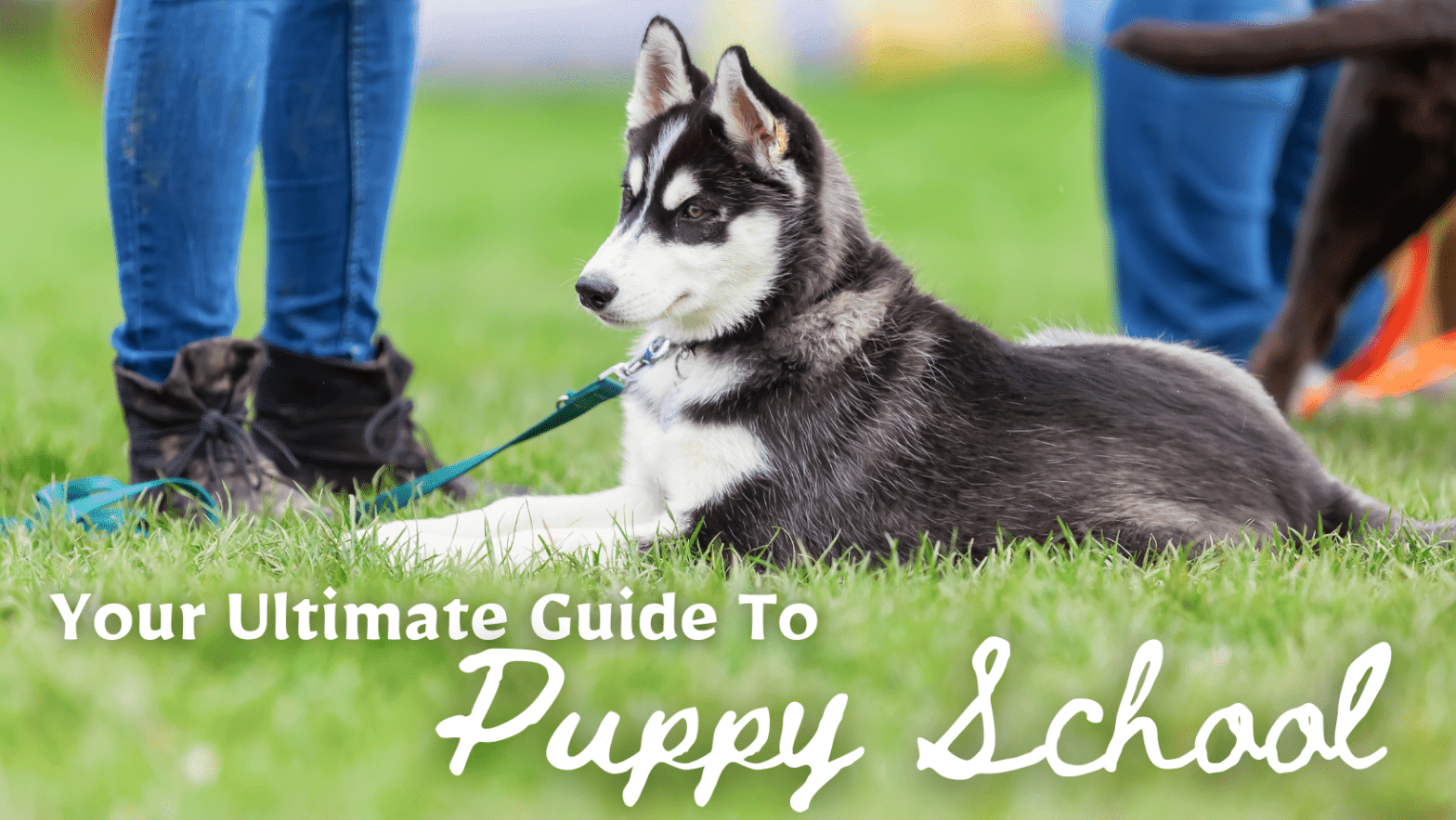

Admin
Published On Feb 06,2023
Bringing a new puppy into your home is an exciting experience, but it also comes with a lot of responsibility. Puppies are like sponges, soaking up new experiences, and the first few months of their lives are critical for shaping their personalities, habits and future behaviour. This is why enrolling your puppy in puppy school is a smart investment in their future and should not be over looked.
Table of Contents
TogglePuppy school is a structured training program designed for puppies up to 16 weeks of age. It provides a safe and controlled environment where puppies can interact with other dogs and people, learn basic commands, and get used to being around new environments. By attending puppy school, your puppy will have the opportunity to form positive associations with new experiences and develop essential socialization and obedience skills.
In this article, we’ll discuss the many benefits of puppy school, including the importance of socialization, basic training, preventing bad habits, and bonding with your puppy. We’ll also explore what to look for when choosing a puppy school, such as positive reinforcement training methods and experienced trainers.
So, whether you’re a new puppy owner or simply considering getting one, read on to learn about the significance of puppy school and how it can help shape your puppy into a confident and well-behaved companion.
Jump To:
What is puppy school and why is it so important?
The debate over puppy socialisation: When is the right age to start?
At what age should your puppy go to puppy school?
Should I bring the whole family to puppy school?
How do I choose the right puppy school for me and my puppy?
What should I avoid when selecting a puppy school?
What is Puppy School?
Puppy school is a structured training program for puppies up to six months old. It’s an opportunity for your puppy to socialize with other puppies, learn basic commands, and get used to being around people and new environments. The goal of puppy school is to provide a positive and fun learning experience that lays the foundation for future training.
Why is Puppy School Important?
- Socialisation: Puppies are naturally social animals, and socialising with other dogs and people is essential for their development. Puppy school is a safe and controlled environment where your puppy can interact with other puppies, dogs, and people, helping them become confident and well-adjusted.
- Basic Training: Puppy school is a great place to start learning basic commands like “sit,” “stay,” and “come.” These commands not only help you communicate with your puppy, but they also keep your puppy safe in potentially dangerous situations.
- Preventing Bad Habits: Puppies have a lot of energy, and without proper training, they can quickly develop bad habits like excessive barking, chewing, or digging. Puppy school can help prevent these habits from becoming ingrained by teaching your puppy how to behave appropriately.
- Bonding with Your Puppy: Attending puppy school together is a great way to bond with your new furry friend. You’ll be working together to achieve the same goals, and your puppy will see you as a positive leader in their life.
The Debate Over Puppy Socialization: When is the Right Age to Start?
As a new puppy owner, one of the most important things you can do for your furry friend is socialize them. Socialisation helps puppies develop confidence, become well-adjusted to new experiences and people, and prevent behavioral problems down the road. But when is the right time to start socialising your puppy? This is a topic of debate between veterinarians and dog trainers, and ultimately, the decision is up to the owner.
On one hand, veterinarians often recommend waiting until puppies have completed their vaccinations before exposing them to new experiences and other dogs. This is to prevent the risk of infectious diseases, especially for puppies with compromised immune systems.
On the other hand, dog trainers argue that the critical socialisation period for puppies is from 5 to 16 weeks of age, and waiting to socialize until after this window can lead to missed opportunities and behavioural issues down the road. They recommend taking precautions such as avoiding high-risk areas for infectious diseases and ensuring other dogs are healthy and up-to-date on vaccinations before socialising.
So, what’s the right answer? Ultimately, it’s up to the owner to weigh the risks and benefits and make an informed decision. If you have concerns about your puppy’s health, it’s best to consult with your veterinarian to determine the best course of action. If your puppy is healthy and up-to-date on vaccinations, consider taking advantage of early socialization opportunities, such as puppy classes, playdates, and visits to new environments, while taking appropriate precautions to ensure their safety.
At What Age Should My Puppy Go To Puppy School?
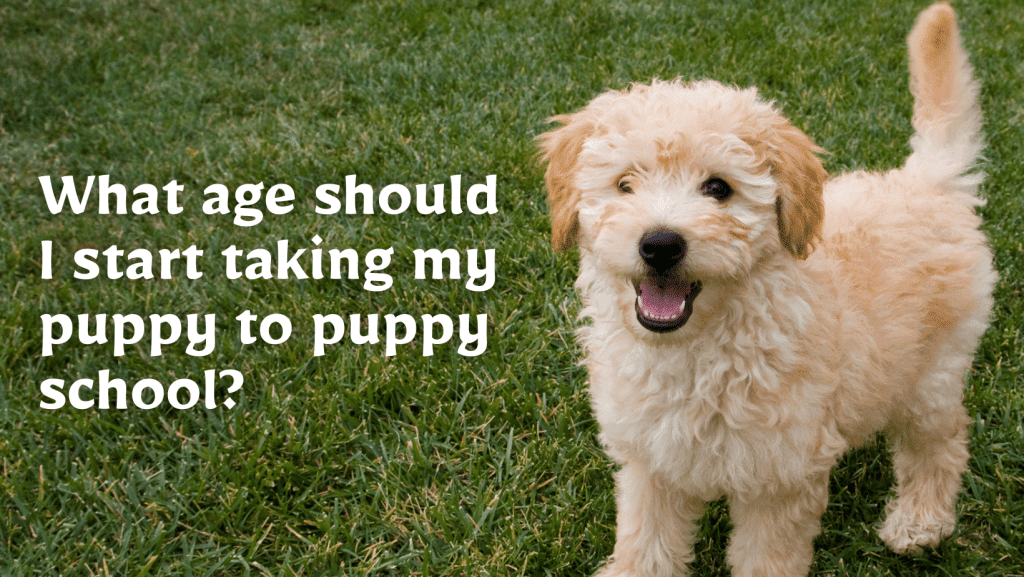
Puppy school is a crucial step in a young dog’s life. It helps to shape their behavior and socialize them with other dogs and humans, which is why it’s important to start them at the right age.
The ideal age to start a puppy in school is between 8 and 16 weeks. This is the time when they are most receptive to learning new things and forming good habits. At this age, puppies are still impressionable, and the lessons they learn in school can stick with them for the rest of their lives.
Starting a puppy in school too early or too late can have negative effects. Puppies under 8 weeks are not yet ready for the stimulation and socialization that school provides, and waiting until a puppy is over 16 weeks may make it harder for them to adapt to new experiences and socialize with other dogs.
In puppy school, puppies learn basic commands, such as “sit,” “stay,” and “come.” They also learn to interact with other dogs and humans in a controlled environment, which helps to prevent fear and aggression later in life.
Puppy school classes typically last for 4-6 weeks and are ideally taught by a professional dog trainer (some puppy classes are run by vet nurses and pet shop assistants which poses a slight risk that the instructor doesn’t have the same knowledge and experience when it comes to puppy cognition and development). The classes are designed to be fun for the puppies, and owners are encouraged to participate to reinforce the lessons at home.
In conclusion, enrolling a puppy in school between 8 and 16 weeks of age is the ideal time to start. Puppy school provides a safe and controlled environment for young dogs to learn and socialize, which is essential for their future well-being. If you’re unsure when to start your puppy in school, consult with your veterinarian or a professional dog trainer.
Should I Bring The Whole Family To Puppy School?
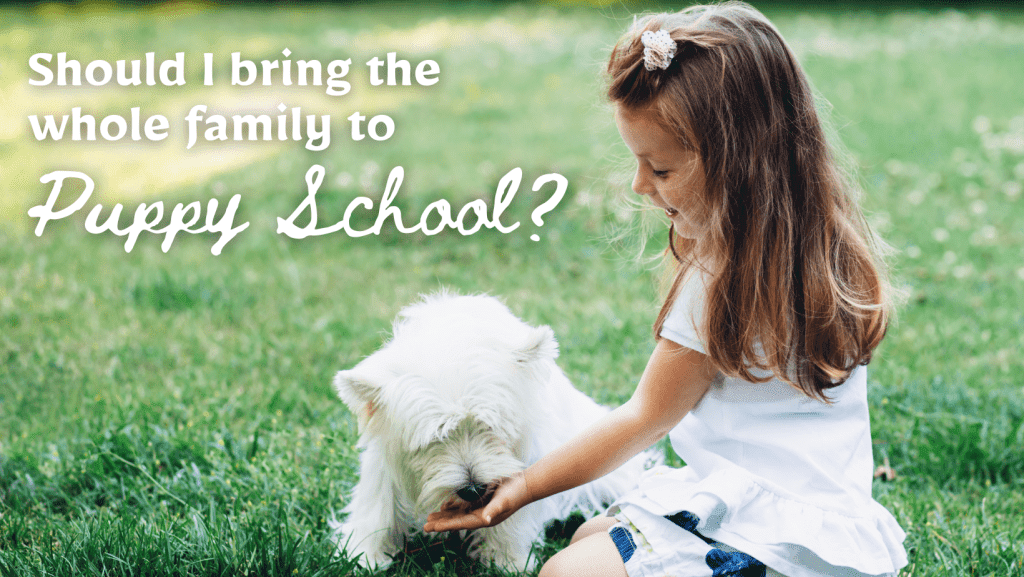
Bringing the whole family to puppy school can be a great way to involve everyone in your puppy’s training and socialization. It can also help to ensure that everyone in the household is on the same page when it comes to training and handling the puppy.
However, it’s important to consider the size of the class and the age of your children when deciding whether to bring the whole family. If your children are very young, they may get bored during class which can lead to distruption for the rest of the attendeees. If this is the case, it may be best for you to bring an activity for your child to do, or arrange for someone to care for them at home while you attend. It’s not just for the other attendees, if you are having to watch your children, you won’t be absorbing as much information as you can. But, if your children are at an age where they can help with a bit of training, bringing them to puppy school is a great way to get them started.
Overall, it’s important to make sure that everyone attending puppy school is committed to training and socializing the puppy. If some family members are not interested or not able to participate, it may be best for them to stay home.
How to Choose The Right Puppy School For You?
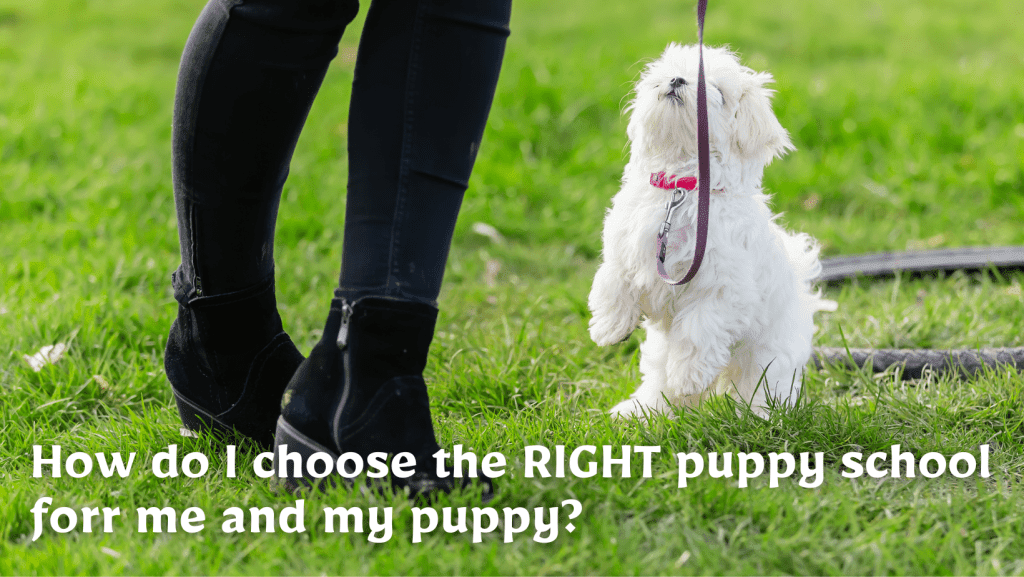
When choosing a puppy school, look for one that uses positive reinforcement training methods and has experienced trainers who are knowledgeable about puppy behavior and development. It’s also important to choose a school that offers small class sizes so that your puppy can get individual attention and have plenty of opportunities to socialize.
In conclusion, puppy school is an essential aspect of your puppy’s growth and development. It’s an investment in your puppy’s future and a great way to start building a strong bond with your new furry friend. So, don’t hesitate to enroll your puppy in puppy school and watch as they grow into a confident and well-behaved companion.
What To Avoid When Selecting A Puppy School?
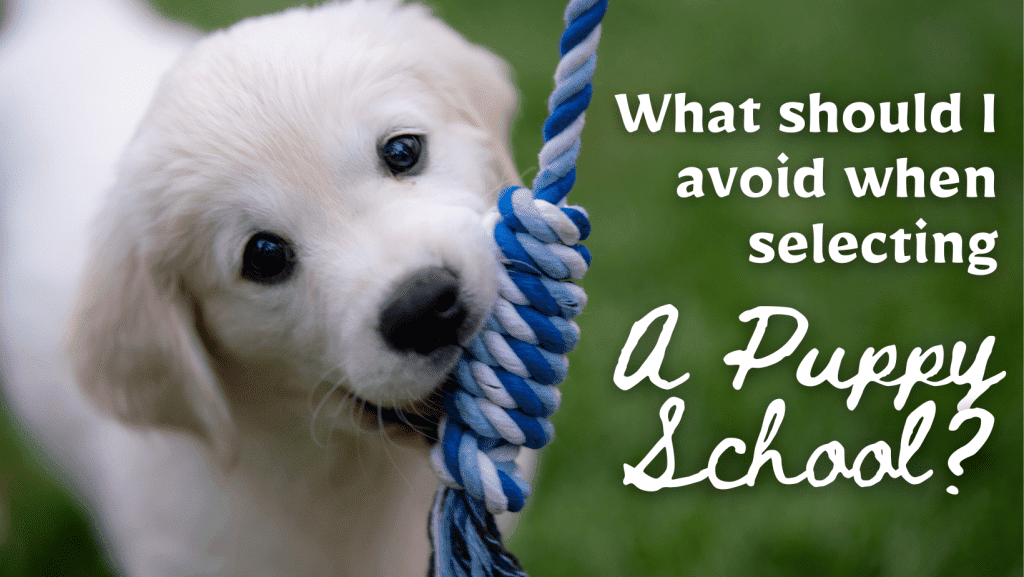
When choosing a puppy school, it’s important to avoid certain practices that may not be in the best interest of your furry friend. Here are a few things to look out for and avoid when selecting a puppy school:
- Tricks instead of behavior work: Puppy school should focus on behavior training and socialization, not just teaching tricks. While tricks can be fun, they should not take precedence over essential obedience and socialization skills that will help your puppy become a well-behaved and confident companion.
- Harsh training methods: Avoid puppy schools that use harsh training methods such as physical punishment, dominance-based techniques, or choke chains. These methods can cause fear, anxiety, and aggression in puppies and can lead to long-term behavioral problems.
- Overcrowding: Puppies need individual attention and guidance, so avoid puppy schools that are overcrowded and do not provide enough one-on-one time with trainers.
- Unqualified trainers: Make sure the trainers at the puppy school have experience and certification in positive reinforcement training techniques. Avoid schools where the trainers are not qualified and may use improper techniques that could harm your puppy.
- Lack of structure: Puppy school should be structured and provide a safe and controlled environment for your puppy to learn and interact with other dogs and people. Avoid schools that lack structure and do not provide a positive and supportive learning experience for your puppy.
In conclusion, when choosing a puppy school, it’s important to look for programs that prioritize behavior training and socialization, use positive reinforcement training methods, provide individual attention and guidance, and have qualified trainers. By avoiding schools that use harsh training methods, are overcrowded, lack structure, or prioritize tricks over behavior work, you’ll ensure your puppy has the best possible experience and becomes a well-behaved and confident companion.





